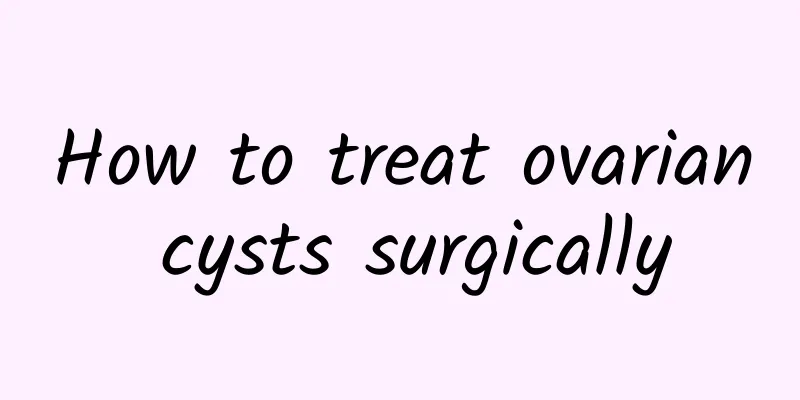Is it necessary to treat menopause?

|
When women reach menopause, they will naturally experience menopause. Proper conditioning in the early stages of menopause will not cause harm to the body, but menopause during menopause may also be related to disease. Women tend to relax their vigilance when they reach menopause. Before menstruation stops, women should pay attention to menstrual problems. Active diagnosis and treatment are required if menopause occurs at any time. Experts remind that women who stop menstruating before the age of 40 are considered to have premature ovarian failure. Among women with premature ovarian failure, most are managers, white-collar workers, and corporate managers who have irregular menstruation due to work pressure, insufficient sleep, fatigue, and staying up late, or even premature menstruation. In addition, many young women also experience premature menstruation due to weight loss, unreasonable diet structure, crazy exercise, and no eating. It is recommended that women go to the hospital for examination to determine whether treatment is needed. Conditions that require treatment (1) Uterine causes. Also called uterine menopause. Amenorrhea is caused by uterine problems, such as congenital absence of the uterus, uterine hypoplasia, or childhood diseases that affect the endometrium, causing adhesions or scars. Although the ovaries function well and female characteristics develop normally, there is no menstruation. Secondary amenorrhea occurs when a disease occurs after menarche, such as endometrial tuberculosis, endometrial schistosomiasis, endometrial suppuration, or the basal layer of the endometrium is scraped off during curettage, resulting in failure to respond to ovarian hormones. (2) Ovarian causes. Also known as ovarian menopause. Normal menstruation occurs because the hormones secreted by the ovaries act on the endometrium, causing it to change, then shed and bleed. If the ovaries cannot secrete hormones, the endometrium will not change and menstruation will stop naturally, such as congenital ovarian hypoplasia and premature ovarian failure. Amenorrhea caused by this reason is often accompanied by poor development of female characteristics or degeneration of characteristics, such as equalization of breasts. (3) Pituitary causes. This is called pituitary menopause. The pituitary gland is located below the brain. It is very small, but it controls the endocrine organs throughout the body. When the pituitary function changes, the ovarian function decreases. Common pituitary diseases are tumors and hypopituitarism. (4) Central nervous system causes. The central nervous system includes the brain and hypothalamus, which command the activities of the pituitary gland and indirectly control the function of the ovaries. When the central nervous system is stimulated, the ovarian function changes and causes amenorrhea. For example, amenorrhea may occur suddenly when one is heartbroken, loses a loved one, or fails at work. It can also be caused by a hypothalamic tumor. Amenorrhea caused by disease needs to be treated, but if it is physiological menopause, you don’t have to worry, it will recover quickly as long as you make timely adjustments. |
<<: Can Bartholinitis be cured?
>>: What are the symptoms associated with cervical warts?
Recommend
Poria cocos and lean meat porridge can assist in the treatment of chronic pelvic inflammatory disease
Chronic pelvic inflammatory disease is often caus...
Experts explain possible causes of ovarian cysts
Many female patients with ovarian cysts are confu...
Lowering cholesterol, improving fatty liver, 4 major benefits of mulberries! Nutritionist Hong Ruopu: 4 tips for choosing mulberries
Office workers who often eat out for three meals ...
What is the difference between curettage and abortion?
What is the difference between curettage and abor...
What are the better nursing methods for endometrial tuberculosis?
Some women don't know about endometrial tuber...
Patients should always pay attention to the care methods of cervical erosion
Now, the incidence of cervical erosion is rising,...
Get a good body shape with core training and no worries! 3 must-do core exercises that won’t interfere with watching TV series or applying facial masks
When many beginners start exercising, the first t...
The best treatments for uterine effusion include
In life, everyone should pay attention to their o...
Cervical precancerous lesions of grade 3 are very serious
Analyzing the hazards of cervical precancerous le...
What is the reason for less dark menstruation?
What is the reason for less dark menstruation? Da...
Will untreated bacterial vaginosis lead to infertility?
Whether the pregnant woman is healthy directly af...
How to treat cervical erosion?
The incidence of cervical erosion is now rising, ...
What does uterine fibroids look like? What are the dangers of uterine fibroids?
Many female friends suffer from uterine fibroids,...
What ointment is used for gynecological vulvar itching and white spots? What medicine is there to relieve itching for gynecological white spots?
Gynecological vulvar pruritus leukoplakia is a co...
Is uterine fluid harmful to women?
The uterus is a very important reproductive organ...









